Reviewing Our Event: Co-design in Practice
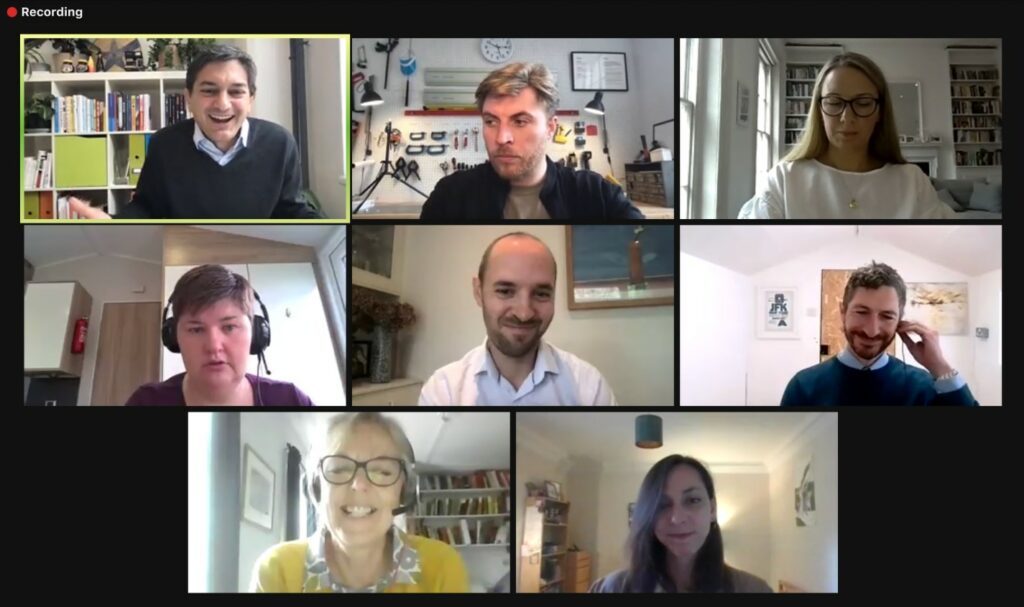
Almost 200 people registered for our October briefing event: Co-design in Practice.
The purpose of the event was to share learnings and best practice on co-design, which is frequently used at Claremont in tandem with behavioural science. We’ve used co-design on projects spanning from domestic violence, to early years literacy, to the Grenfell Tower memorial.
But what is co-design?
Well, as Ben noted in his opening remarks, there is no locked definition. We’ve been working on a definition of our own with Steven Johnson, who kindly joined the event as a panellist. Here’s what we’ve come up with: co-design is a structured collaboration to design inclusive, effective behaviour change interventions built on experience: professional, technical and personal.
And why should we bother with it?
Back to Ben, who explained that co-design provides insight into our audience, it generates actionable ideas, it creates tangible impacts, and it enables inclusion by rooting itself in the audience’s lived experience. In short, why wouldn’t we bother with it?
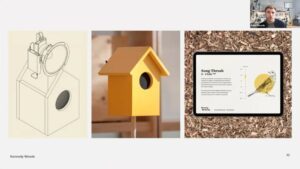
Our first speaker, Tom Woods, director of design studio Kennedy Woods, showed us just how inclusive co-design can be. Tom is working on an amazing project that is using co-design to support hearing health through (wait for it) the sounds of bird song. Working with the Dyson School of Engineering, Tom’s project uses bird calls at various frequencies to help to detect hearing loss. Tom explained that he’s been working with a patient steering group since 2018, and that they have proved essential to the evolution of the project, working hand-in-hand with a team of experts.
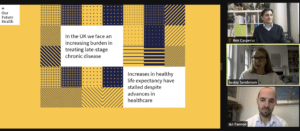
Tom was followed by Dr Saskia Sanderson, Chief Behavioural Scientist at Our Future Health, alongside Claremont’s Ian Fannon. Our Future Health is involving the public in building the UK’s largest health research programme. Over 155 members of the public have been involved in Claremont’s work with Our Future Health, with dedicated co-design sessions taking place remotely. Ian detailed some of the challenges of ‘online co-design‘, which included allowing extra time for rapport building and finding new ways to share creative. However, moving online also came with its benefits: the groups were geographically diverse in composition and people seemed more relaxed and open to discussion in their own homes.
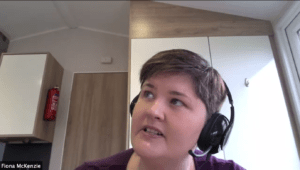
Rounding off our presentation section, Fiona McKenzie, former Deputy Director for the UK Improvement Alliance, told her deeply personal story that began as a patient many years ago. Querying why NHS outpatient treatment was so draining for both patients and staff, Fiona ended up running to be a patient governor. Fiona stressed that co-design is a process, not an outcome. It is designing with people, not just to them or about them: an equal partnership.
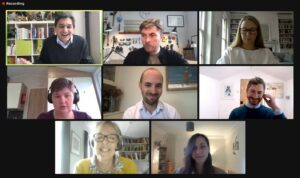
As we reached the panel discussion, the questions were piling in and time was running short. There was a sense that many would have welcomed another hour. Steven Johnson joined Lizzie Cain from UCL Co-Production Collective and Anne McKee from Sure Start, Belfast. Anne spoke of her experience working with Claremont and Save the Children, and how she learnt to trust parents throughout the co-design process and really listen to their stories. Lizzie spoke of co-design as a “way of being” and not just a straight line or simple methodology to be followed.
The panel also touched on the word cloud, which the event’s attendees had been ‘co-designing’ throughout. Attendees were invited to share any word or words that came to mind when they thought about “co-design” and you can see the results below:
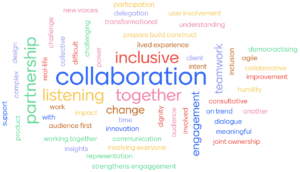
Co-design is a hotly discussed topic and it’s only becoming more prevalent. But, as Steven noted at the end of the event, it is not enough to simply take your audience at face value and just do whatever they say. Co-design is a collaborative process that involves work and translation to build a meaningful output: it is well considered, engaging and empowering for the participants.
If you’re interested in hearing more, please find a recording of the event below and, in the spirit of collaboration, let us know what you think in the comments.
We’ve also opened pre-registration for our November virtual event Cancer screening and diagnosis: can behaviour change communications help? We hope to see you there.
